Teaching Vocabulary in Speech Therapy can be one of the trickiest areas to work on, mainly because there is no clear path for it. The best way we have seen however is to target address building vocabulary is to focus on using strategies and meaningful repetition.
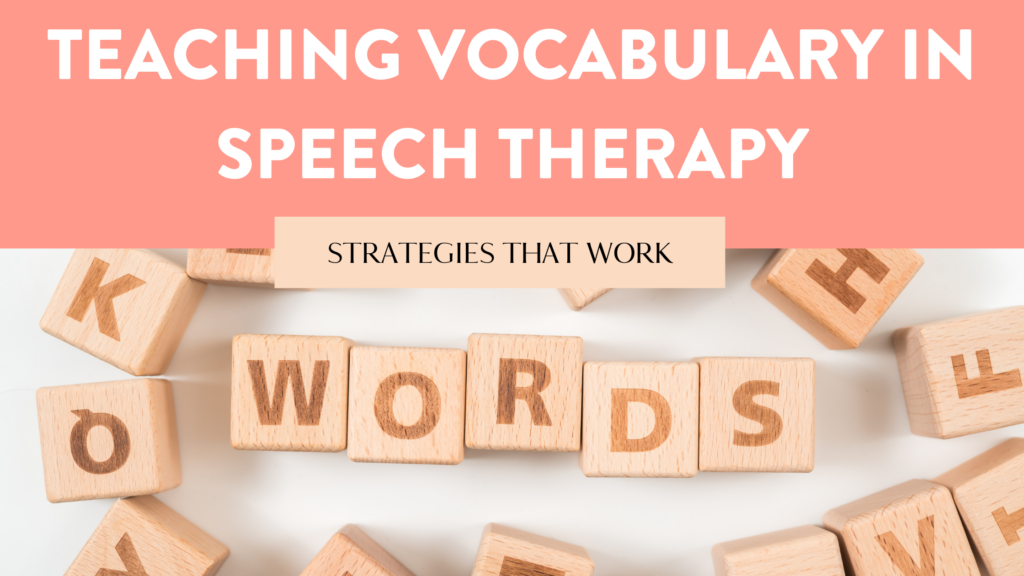
Students need to comprehend at least 90-95% of words in a text to comprehend it (Nagy & Scott 2000) … So, This means working on vocabulary development is a critical element of therapy. According to Storkel et al., 2019, students need at least 36 exposures to a new vocabulary word for it to stick. That means 6 different exposures to the word across 6 different sessions ( or 9 exposures across 4 sessions, however you want to work the math). ?
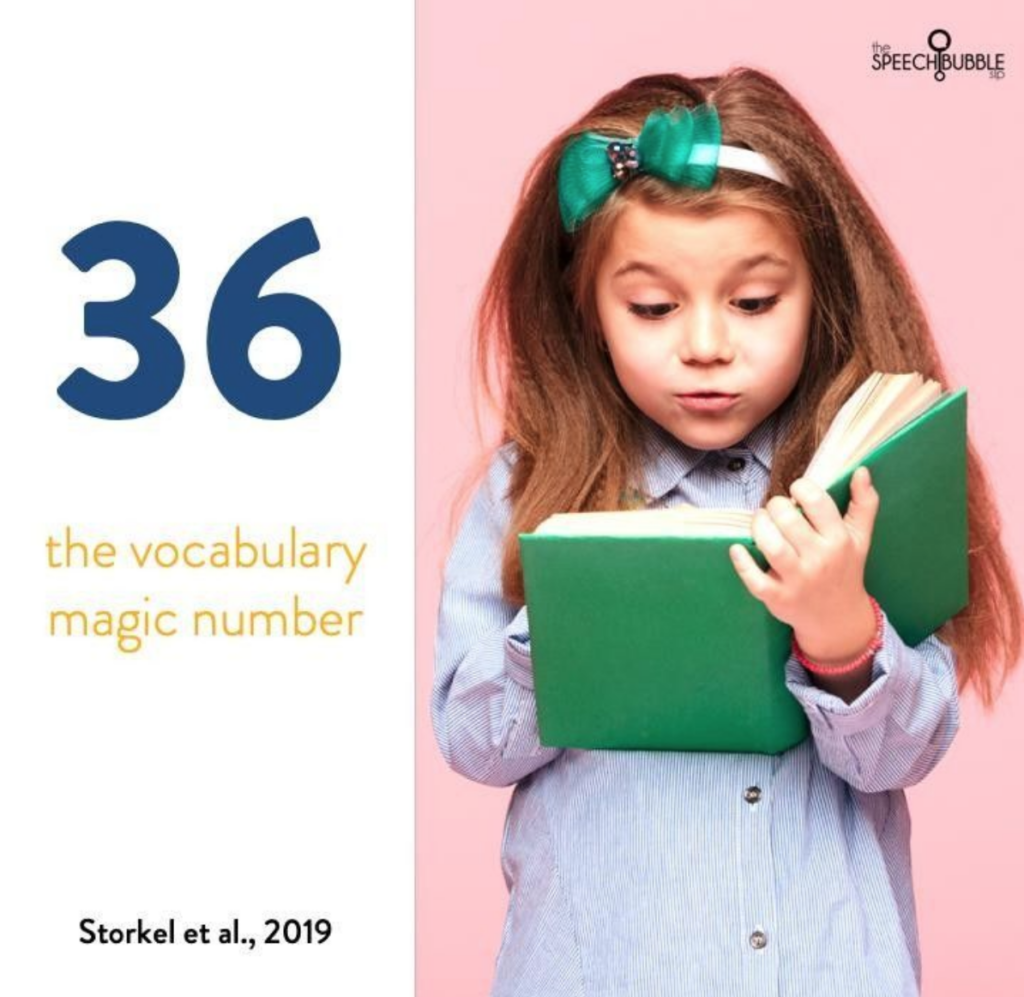
Before we dive into strategies, somethings to keep in mind when working on vocabulary and literacy. First, don’t feel you need to work on every possible vocabulary word in the book. Pick 5-7, tier 2 words, or words that are re-occurring in the text to focus on. Then, pre-teach these words before you even read the book. Give the students a definition right away rather then having them guess, and let the learning go from there.
Ok, onto strategies!
Vocabulary in Speech Therapy: CONTEXT CLUES
Using context clues has been an evidence-based way to help students boost and learn new vocabulary. No matter how much vocabulary a student has there will always be words they don’t know. This helps students understand how to find the relevant information for the word within the context it is being used.
Fair warning, this strategy can overwhelming for kids, so I have developed a concrete system to make things more straightforward. I call it the Clue Sandwich. You start by highlighting the sentence the word is in, then in another color, highlight the sentence before it, and finally highlight the sentence after it in a 3rd color. This gives a visual area for the students to focus on, rather than a bunch of daunting text. I have the whole strategy broken down in this post.
I use these Context Clues in Color pages to help students practice this breakdown in a structured setting before branching to using academic texts or passages from class.
Vocabulary in Speech Therapy: Prefixes and Suffixes
These little parts of speech can have a big impact on vocabulary. While understanding the full word may be tricky at first, students have a fighting chance if they can pick apart the ‘little words’ they do know. Seeing the word ‘reoccurrence’ might be intimidating to a student but if they recognize the prefix ‘re’ and know that it means ‘to do again’ then they can apply context from the text to get an idea of the definition. Suffixes can do just the same. Teaching prefixes as suffixes doesn’t have to be a long-drawn-out event either. I use a prefixes bulletin board with my students as a warm-up. We focus on two prefixes a week and it has truly helped them start to identify these prefixes in text.

GRAMMAR
Finally, kids who identify the part of speech of a word ( noun, verb, adjective ) had better vocabulary skills than those who could not. If a student can use clues to determine how the word is being used, it puts them one step closer to establishing meaning for it. My favorite strategy for this is Word Mapping.
It has the student break down the word into parts of speech, synonym/antonym, application, and illustration. As we complete each map, we keep them and review them at the start of each session to increase our exposure and repetition. I have used these Vocabulary Kits for years. These are best for students whose vocabulary deficits are in the mild to slightly moderate range. It gives you all the words, pretest/post-test, activities, and more.
These strategies are shown to give those students the actual boost in vocabulary development they need. Do you have a favorite method to teach vocabulary?

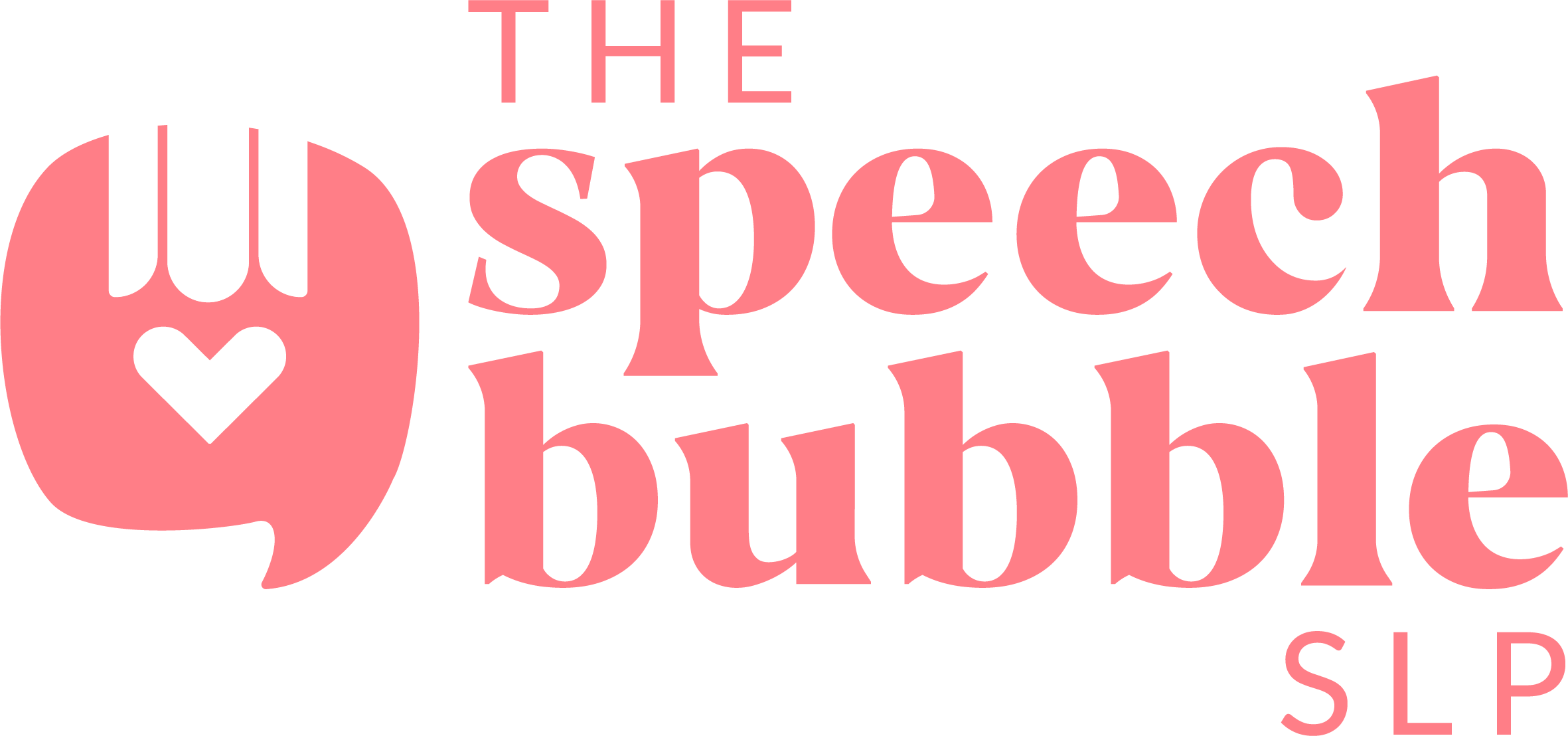






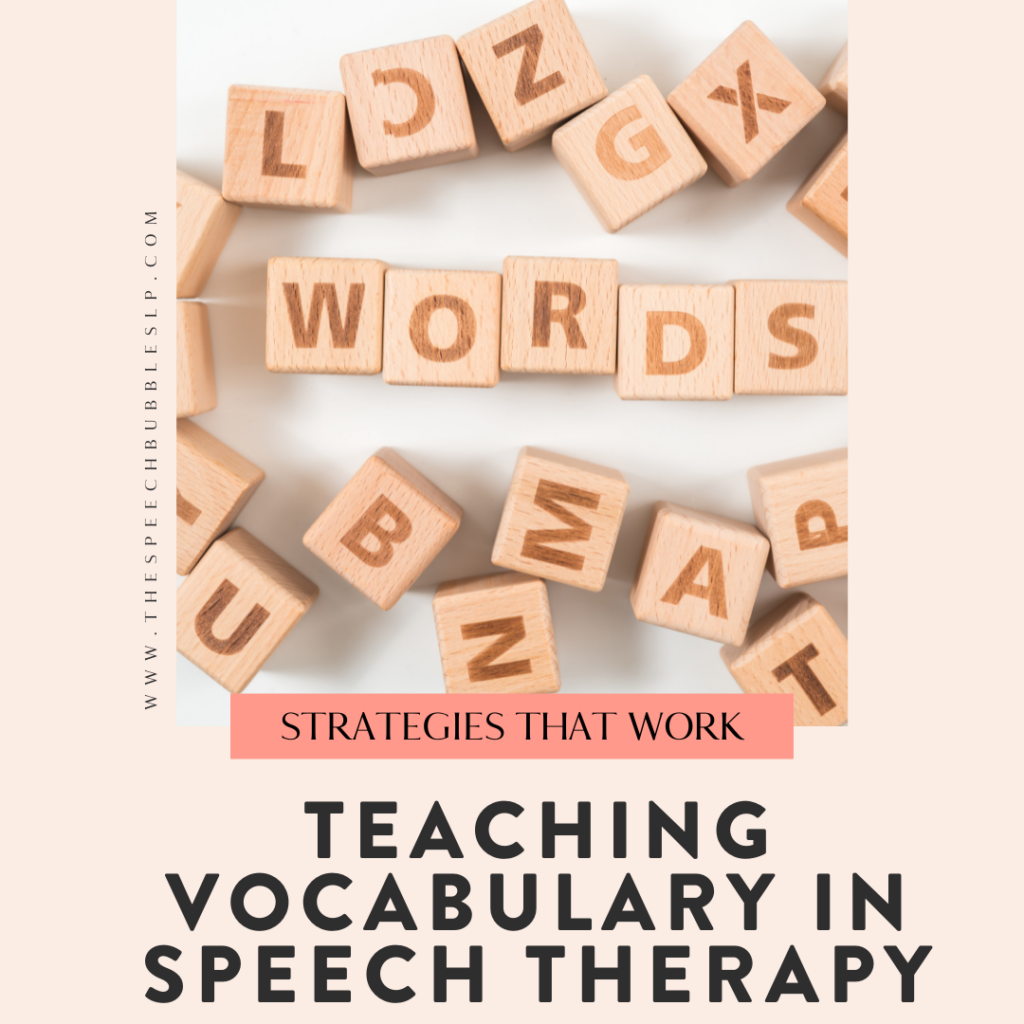
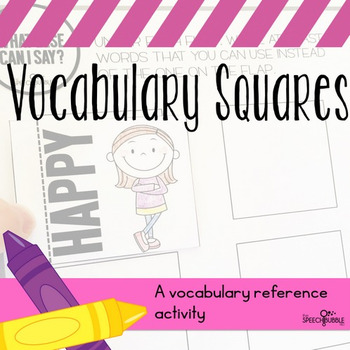



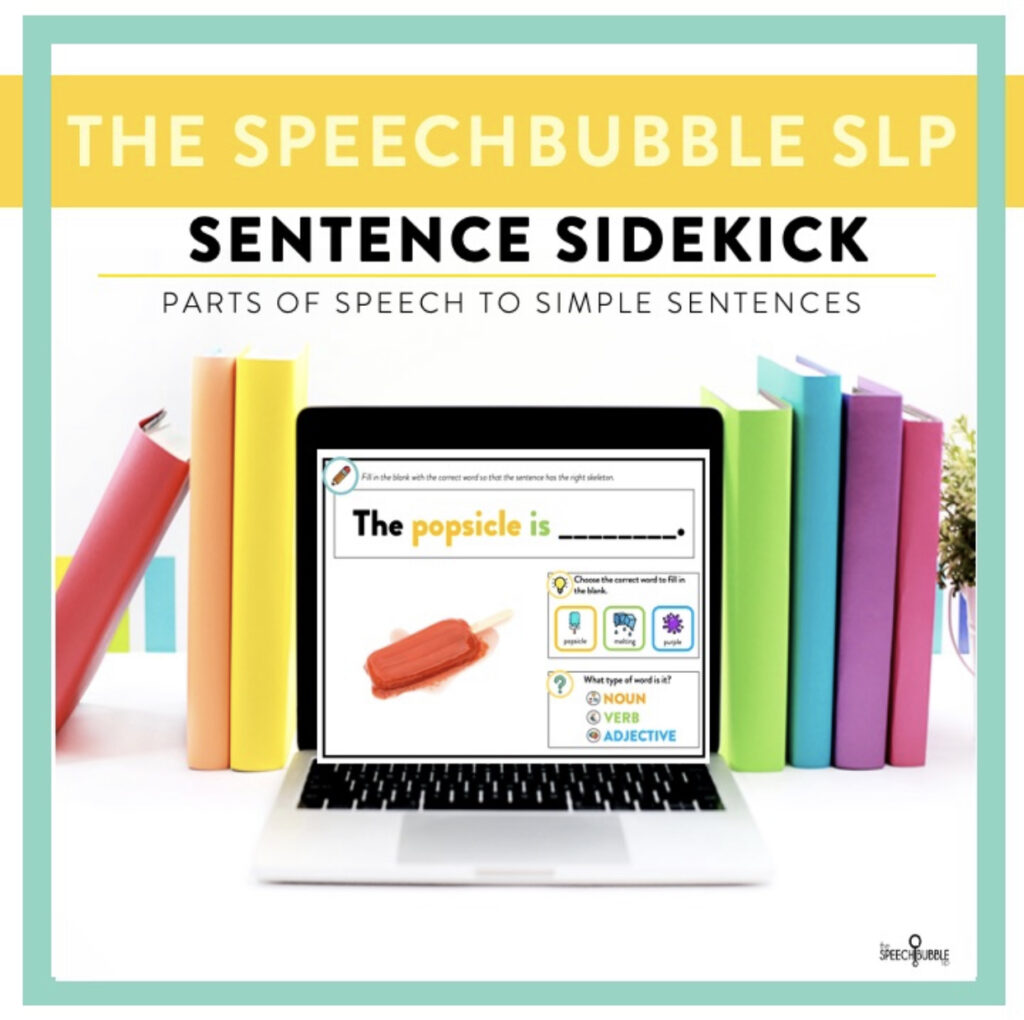
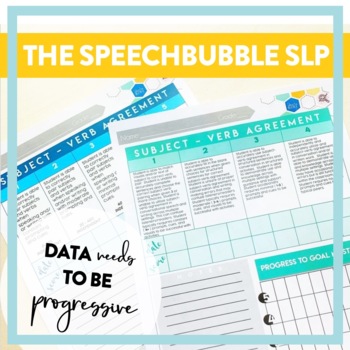
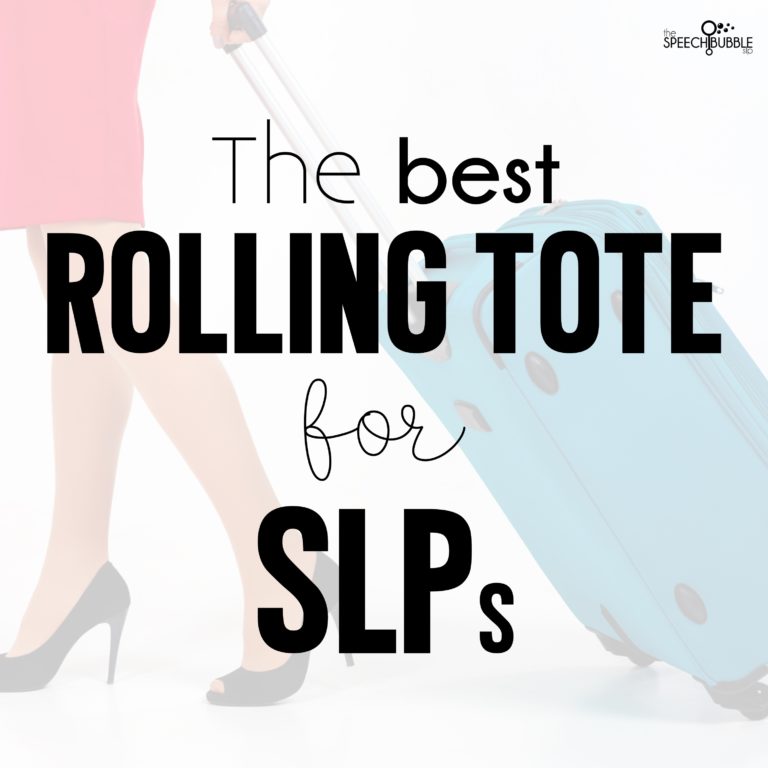
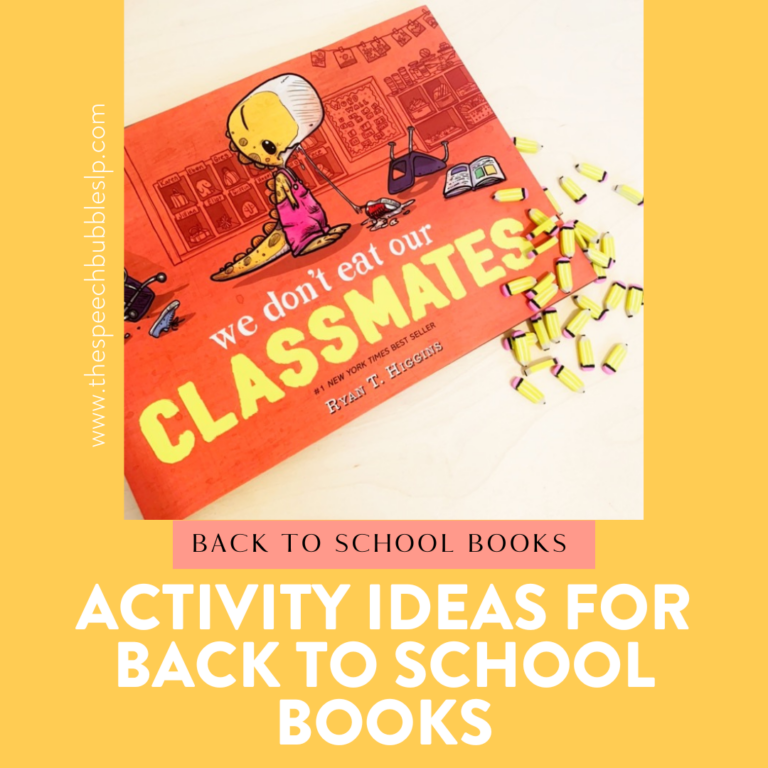
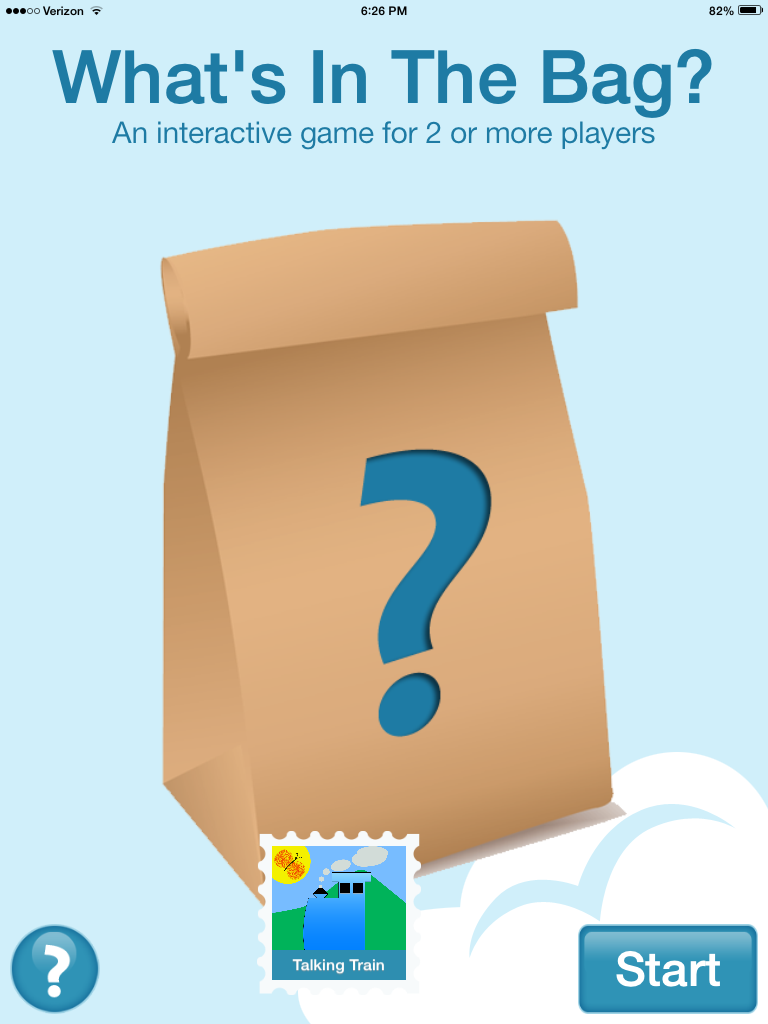

2 Responses